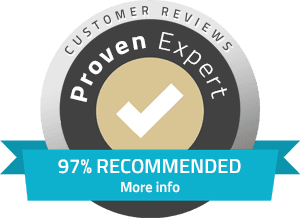Improving your SEO knowledge requires a combination of learning, practical application, and staying updated with industry trends. Here are steps you can follow to enhance your SEO expertise:
1. Foundational Understanding
Study Basics: Start with understanding what SEO is, how search engines work, and key terminology (keywords, backlinks, SERPs, etc.).
Read Reliable Sources: Follow reputable SEO blogs, websites, and resources like Moz, Search Engine Land, SEMrush Blog, Ahrefs Blog, Google Webmasters Central Blog, and HubSpot.
Take Online Courses: Platforms like Coursera, Udemy, and LinkedIn Learning offer SEO courses covering basics to advanced topics.
2. Hands-On Practice
Create a Website: Start a blog or a personal project where you can implement SEO techniques.
Optimize Content: Practice keyword research, on-page optimization (title tags, meta descriptions, headers), and content creation with SEO principles in mind.
Use SEO Tools: Familiarize yourself with tools like Google Analytics, Google Search Console, SEMrush, Ahrefs, and Yoast SEO (for WordPress) to analyze data and improve performance.
3. Advanced Topics
Technical SEO: Learn about site architecture, crawlability, indexing, and technical optimizations (page speed, mobile optimization, schema markup).
Link Building: Understand strategies for acquiring high-quality backlinks, guest blogging, and avoiding penalties (e.g., Google’s guidelines on link schemes).
Local SEO: Explore optimizing for local search, including Google My Business optimization, local citations, and reviews management.
4. Stay Updated
Follow Industry Experts: Engage with SEO professionals on social media platforms like Twitter, LinkedIn, and SEO forums.
Attend Webinars and Conferences: Participate in webinars and SEO conferences (both online and in-person) to learn from industry leaders and stay current with trends.
Read Google Updates: Keep track of algorithm changes and updates from search engines like Google to adapt your strategies accordingly.
5. Experiment and Analyze
Test Hypotheses: Conduct A/B tests for SEO changes to understand what works best for your website.
Monitor Performance: Use analytics tools to track traffic, conversions, rankings, and other key metrics.
Iterate Based on Data: Continuously optimize your SEO strategies based on data-driven insights and performance analysis.
6. Join SEO Communities
Online Forums: Participate in SEO communities such as Reddit’s r/SEO, Moz Q&A, or forums on platforms like Webmaster World.
LinkedIn Groups: Join groups focused on SEO discussions and networking.
7. Certifications
Get Certified: Consider pursuing certifications like Google Analytics Individual Qualification (IQ) or HubSpot Content Marketing Certification to validate your knowledge.
8. Networking
Connect with Peers: Build relationships with other SEO professionals through networking events, conferences, and online communities.
Mentorship: Seek out mentors who can provide guidance and feedback on your SEO journey.
- +91 8300 665471
- info@vestaoneup.com



